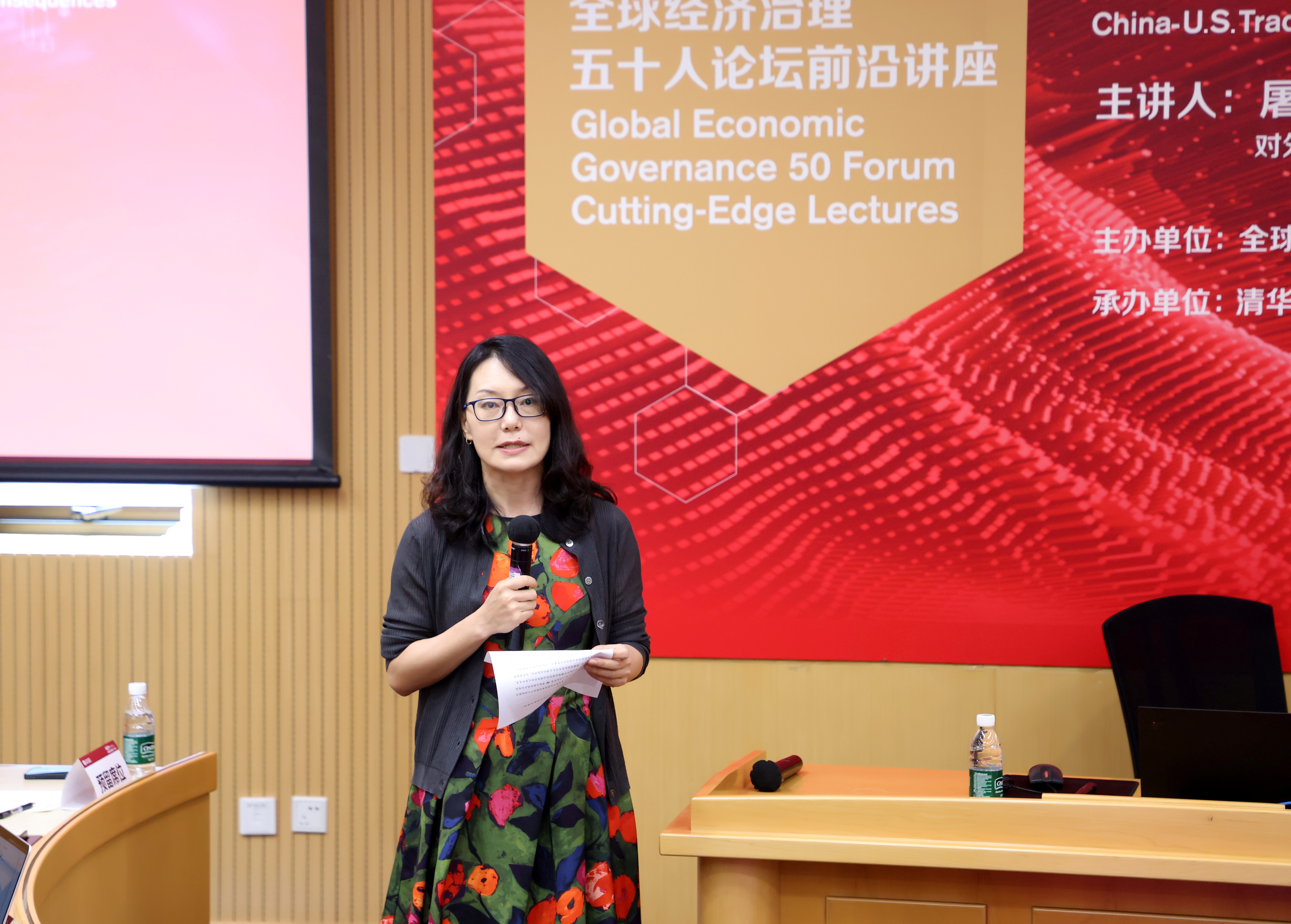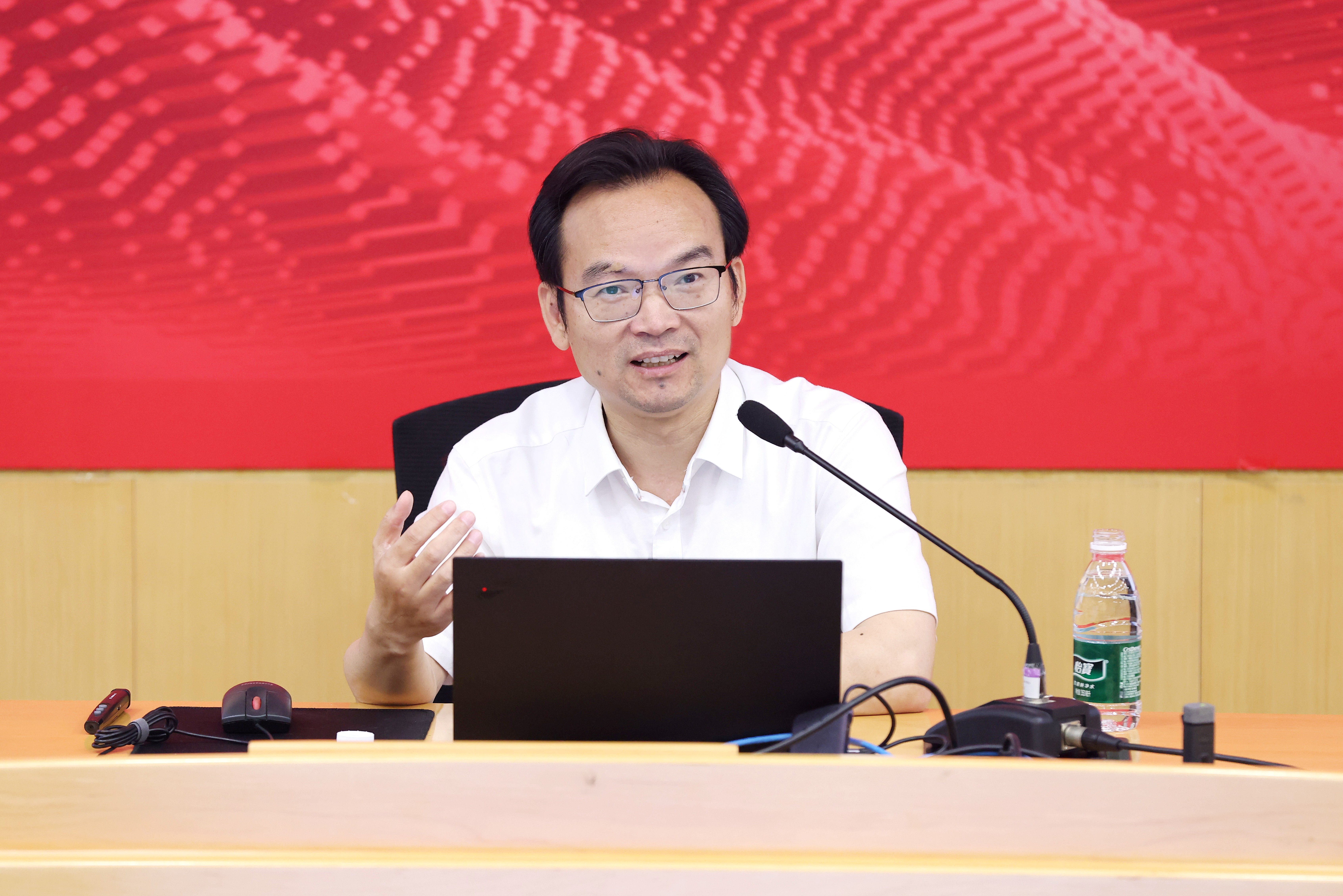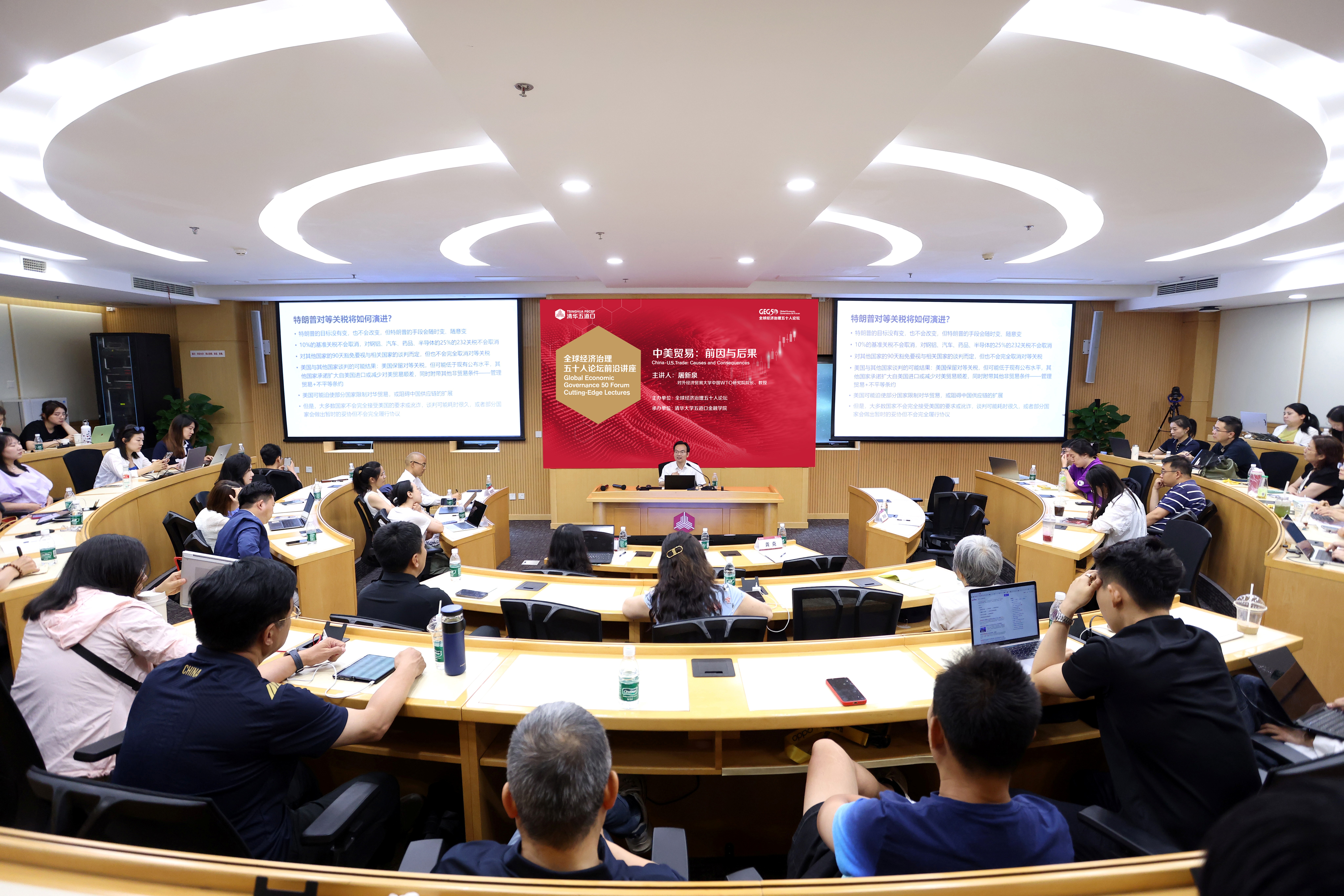On June 17, Professor Tu Xinquan, Dean of the China Institute for WTO Studies at the University of International Business and Economics, was invited to deliver a lecture titled “The China-U.S. Trade—Causes and Consequences,” at the Global Economic Governance 50 Forum Cutting-edge Lectures. The event was chaired by Yuan Yuan, Assistant Dean of Tsinghua University PBC School of Finance (Tsinghua PBCSF).

During the keynote speech, Professor Tu Xinquan began by outlining the broader context of the global economy. He noted that the world is currently facing a lack of new growth drivers, and that the contribution of technological progress to productivity has been declining steadily since 2008. He then reviewed the evolution of U.S. foreign economic and trade policy, observing that since 2008, the United States has gradually shifted from multilateral engagement to a focus on regional arrangements, along with a strategic pivot back to the Asia-Pacific. Since 2017, however, U.S. trade policy has undergone a sharp transformation, characterized by a series of increasingly forceful measures such as import tariffs, export controls, “friend-shoring,” and restrictions on technology transfer. A fundamental goal of these policies, Professor Tu pointed out, is to prevent other countries from benefiting from their economic relations with the United States. Professor Tu argued that one of the major drivers behind the U.S. trade war and its broader anti-globalization trend is the growing income inequality within the country and the rise of populism in its domestic politics. Another contributing factor is the U.S. government's renewed perception of the role of manufacturing in national security. However, in practice, the trade war has had only limited effectiveness in promoting the reshoring of manufacturing.

Professor Tu emphasized that China has responded to the current trade war with resilience and confidence. China possesses sufficient strength and strategic determination to withstand external pressures, and its firm stance has also helped ease negotiation pressure on other countries. In recent years, China has made notable progress in diversifying its foreign trade and integrating into global production networks. Moreover, expanding domestic demand has become a widely shared consensus across all sectors of society—developments that will continue to provide strong support for the sustained growth of China’s economy and trade.
During the subsequent Q&A session, students and alumni actively engaged with questions. Professor Tu offered detailed responses on a range of topics, including the domestic supply-demand dynamics in China and the U.S., the international monetary system, and the relationship between manufacturing and the service sector.

The Lecture was organized by Global Economic Governance 50 Forum and hosted by Tsinghua PBCSF.